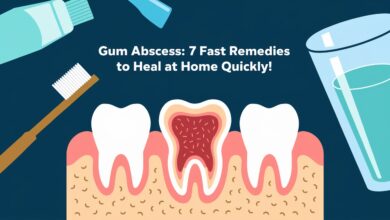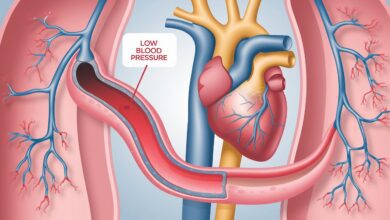The Critical Role of Preventive Dental Care in Employee Well-being

Understanding Preventive Dental Care
Preventive dental care is essential to maintaining optimal oral health, transcending the routine habits of daily brushing and flossing. This comprehensive approach includes regular dental check-ups, professional cleanings, and the adoption of good oral hygiene practices at home. With the increasing recognition of the value of preventive measures, employers are now looking towards different dental insurance plans to explore comprehensive options, such as those found at https://www1.deltadentalins.com/employers/compare-plans.html, which embed these practices into their workplace wellness programs. These plans aim to safeguard employees from immediate dental issues like cavities and gum disease and avert the progression to more severe health complications. By encouraging a culture of proactive care, employers can foster an environment that prioritizes overall well-being, benefiting their workforce and operational efficacy.
Beyond routine care, preventive dental practices entail understanding personal dental health and potential risks. This means tailored advice and care plans unique to each individual’s oral health needs, ensuring that preventative measures are more effective and longstanding. As companies increasingly focus on holistic wellness programs, integrating preventive dental care helps complete
The Link Between Dental Health and Overall Well-being
The relationship between oral health and overall well-being is substantial and sometimes underestimated. Poor oral health doesn’t simply affect the mouth; it can exacerbate numerous systemic conditions. Studies have shown associations between gum disease and cardiovascular issues, suggesting a potential link that places oral health at the forefront of preventive care. Similarly, individuals suffering from chronic conditions such as diabetes are more susceptible to oral infections; therefore, maintaining good dental health is crucial. The Centers for Disease Control and Prevention (CDC) outlines how these interconnections amplify the need for comprehensive dental health strategies. Maintaining robust oral health makes the journey towards overall wellness more achievable, reducing the risk of widespread health problems and enhancing life quality.
Benefits for Employers
For employers, the advantages of incorporating preventive dental care into health benefits are manifold. First and foremost, healthier employees equate to fewer work absences due to dental-related illnesses, directly impacting productivity and operational efficacy. Moreover, employees free from dental pain and discomfort are often more engaged, motivated, and satisfied at work. This, in turn, can lead to enhanced morale and reduced turnover rates. Investing in such programs reflects a company’s commitment to employee wellness. It can be a substantial factor in attracting and retaining top talent. Business leaders recognize that the costs associated with advanced dental treatments are significantly higher than those related to preventive care. Therefore, implementing a structure where preventive dental care is readily accessible and emphasized ultimately supports a more robust, satisfied, and healthier workforce.
Planning for Effective Preventive Care
Designing and implementing an effective preventive dental care plan requires strategic planning and collaboration. It begins with a thorough assessment of the workforce’s dental health needs, often working alongside dental professionals to craft a plan that aligns with the organization’s specific requirements. Education is a pivotal aspect of this strategy, providing employees with the knowledge and tools to maintain oral health independently. Offering workshops, informational sessions, and materials about preventive care’s benefits raises awareness and encourages proactive behavior. Furthermore, incorporating these health initiatives as a fundamental element of the overall wellness programs builds a strong foundation for comprehensive health coverage, promoting long-term employee health and satisfaction.
Debunking Common Myths
Dental care is rife with myths and misconceptions that can hinder proper oral hygiene practices. A common myth is that brushing harder will clean better, which, in reality, can lead to gum damage and abrasion of tooth enamel. Other misconceptions involve oral hygiene products, where people often think the most expensive products are the most effective. Educating employees on these myths and providing factual information can significantly enhance their understanding and approach to dental care. By dispelling these myths, employees can adopt healthier dental habits, leading to better outcomes and a more appreciated understanding of preventive care’s value beyond brushing and flossing.
Getting Started with Preventive Care
Embarking on integrating preventive dental care into corporate wellness programs can seem daunting, but it can be simplified with careful planning and a structured approach. Start by engaging with dental health professionals who can provide assessments and insights crucial to developing a tailor-made care strategy. Once a plan is in place, educate employees on its importance and how to utilize it best. This includes scheduling regular dental exams, understanding personal dental health risks, and utilizing preventive resources. Establishing such a program leads to better oral health among employees and reinforces a company’s dedication to maintaining a healthy workplace, promoting employee loyalty and satisfaction.
Real-life Examples of Successful Programs
Several companies have achieved notable successes by embedding preventive dental care within their employee benefits. One renowned tech firm reported a dramatic decrease in dental complaints and enhanced employee satisfaction after implementing an initiative that provided regular dental screenings and educational workshops. By integrating these preventive measures into their health programs, they noted improved oral health among employees, increased productivity, and a more vibrant work environment. Such stories underscore the tangible benefits that well-executed dental care programs can bring, serving as a compelling argument for other organizations contemplating similar initiatives.
Future Trends in Dental Care
The future landscape of dental care is experiencing transformation through innovation and technological advancements. Tele-dentistry is one such trend that is revolutionizing how dental health is managed, offering a convenient solution for consultations and monitoring from anywhere in the world. Coupled with apps and digital tools for tracking oral health habits, these technologies set a new precedent for engagement and sustainability in dental care practices. Awareness of these emerging trends is essential for companies looking to stay ahead of the curve. It ensures that they continue offering leading, comprehensive benefits that meet the evolving needs of their workforce.



